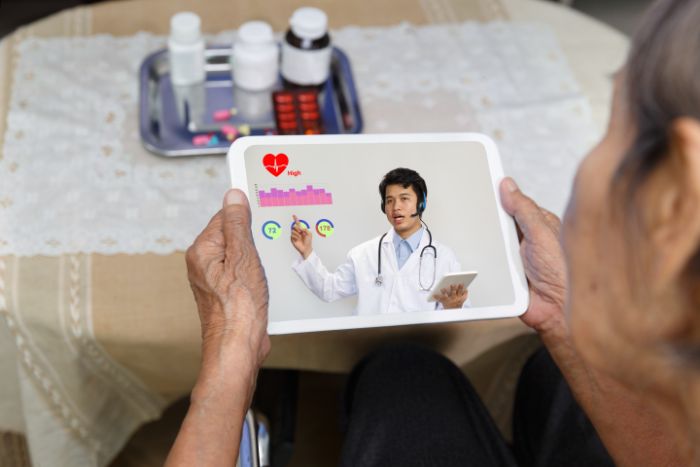Securing Patient Information with Preauthorization Tech
Discover in securing patient information with preauthorization tech. Learn how this innovative approach ensures privacy, enhances compliance, and streamlines access controls for safer healthcare management.

Navigating the healthcare system can be daunting, especially when it comes to ensuring that necessary medical procedures are covered by insurance. One common question that arises is, does Medicare require prior authorization for surgery? Understanding the requirements and processes can significantly alleviate the stress for patients and their families. Let’s dive into the specifics of Medicare’s policies, examine the types of surgeries that may need prior approval, discuss the steps to obtain authorization, and explore potential challenges and solutions.
Let’s get started!
Table of Contents
Securing Patient Information with Preauthorization Tech

The Importance of Protecting Patient Medical Records
Securing records isn’t just about following regulations; it’s essential to delivering healthcare services. Patient data includes medical history, test results, treatment plans, and personal identifiers. If this information falls into the hands, it can lead to consequences like identity theft, financial harm, and unauthorized use of medical services.
Moreover, a breach in data can undermine patient trust, harm healthcare providers’ reputations, and result in legal consequences. The healthcare industry faces vulnerability to cyber threats due to the demand for medical records in illicit markets. Cyber attackers may misuse this information for intentions such as insurance fraud or illicit selling. Therefore, healthcare providers must establish security measures to guard against these risks. The use of preauthorization technology plays a role in protecting this data. By implementing verification processes, this technology ensures that authorized individuals can access patient records, reducing the chances of unauthorized access points exploited by cybercriminals.
Additionally, enforcing encryption techniques, providing security training for staff, and consistently monitoring suspicious activities are vital in fortifying defenses against potential breaches. It is essential to emphasize the importance of securing data. Healthcare providers can safeguard their patients and maintain the credibility of their services by adopting technologies like preauthorization and adherence to data security practices.
How Technology for Preauthorization is Meeting the Demand to Safeguard Patient Data
Preauthorization technology aims to bolster information protection by implementing access control measures. Fundamentally, preauthorization tech guarantees that only verified and authorized individuals can access patient data. This is accomplished through a variety of features and procedures;
Multi-Factor Authentication (MFA)
A strategy employed by preauthorization technology involves multi-factor authentication (MFA). MFA necessitates users to confirm their identity using two or more authentication factors, such as something they know (like a password), something they possess (like a security token), and something they are (like verification like fingerprints or facial recognition). This layered security approach significantly diminishes the chances of access, making it notably challenging for cybercriminals to breach authentication layers.
Role Based Access Control (RBAC)
Preauthorization technology also uses role-based access control (RBAC) to limit entry to information based on the user’s role in the organization. By allocating permissions according to job responsibilities, healthcare providers can ensure that staff members only view data relevant to their roles. This reduces the risk of data exposure and leakage, effectively safeguarding confidentiality and integrity.
Real-Time Monitoring and Notifications
Advanced preapproval systems come with real-time monitoring and alert features. These functions continuously monitor user actions and send notifications for any suspicious activity or unauthorized access attempts. Real-time monitoring enables identification and response to security incidents, helping to reduce harm and protect data.
Secure Record Keeping and Auditing
Another important aspect of technology is secure record keeping and Auditing. The system keeps logs of all access attempts and changes made to patient data, which can be examined during security audits. Secure record keeping serves as a trail of evidence in case of a security breach, allowing healthcare providers to address vulnerabilities promptly.
Data Encryption and Masking
Preapproval technology often integrates encryption techniques to safeguard data when stored and transmitted. Encryption converts data into a format without the correct decryption key, ensuring that even if intercepted, the data remains secure. Data masking adds a layer of protection by anonymizing parts of patient information, rendering it useless to unauthorized individuals.
Frequent Security Upgrades and Fixes
Lastly, pre-pre-approval systems need security upgrades and fixes to defend against threats. By staying current with security protocols and promptly addressing any vulnerabilities that arise, healthcare providers can establish a defense against cyber threats and ensure the ongoing protection of patient data. Incorporating preauthorization technology into healthcare environments significantly enhances information security. Utilizing a combination of Multi-Factor Authentication (MFA), Role-Based Access Control (RBAC), real-time monitoring, secure logging, encryption, and regular updates, preauthorization technology offers a layered approach to safeguarding medical information. This not only aids in meeting standards but also fosters patient confidence and promotes the delivery of top-notch healthcare services.
I'm very thankful for Portiva who I know is looking after my practice while I'm gone the virtual assistants can manage prescription refills, documents they can triage patients and just kind of answer administrative questions and they can handle a lot on their own. But also, they're very good about contacting me if there's any emergency or anything I need to attend to. So I'm very thankful for Portiva they can help almost any provider almost anywhere and it really allows for some good work-life balance as I'm getting to experience right now at my family farm so I'm very thankful for Portiva and I'm very happy to use their services"

Board Certified Family Medicine Physician

Portiva's Virtual Medical Assistant - I have all the support I need. There's somebody checking my email, any patient messages. Patients are still able to schedule and handle any scheduling issues and any kind of billing that needs to still go through. Portiva hands handles it all for me. I have support i have somebody that I can access 24/7 pretty much. It's all very seamless. If somebody has an emergency or needs a medication called in. I know that the va's at portiva will handle that for me.

Board Certified Family Medicine Physician

Building Patient Trust: A Key Element for Successful Healthcare Practices
Trust is a foundation for the relationship between healthcare providers and patients. Establishing trust among patients can facilitate the success of a practice in aspects such as increased retention rates, enhanced reputation, and overall expansion. Let’s delve into how earning and upholding this trust is vital for the prosperity of a healthcare practice;
Improved Patient Retention and Loyalty
When patients have faith in their healthcare providers, they are more inclined to schedule appointments and follow through with treatments. This loyalty results in increased numbers and stable revenue streams for the practice. Trust motivates patients to adhere to treatment plans prescribed by their providers, ultimately leading to health outcomes. Building relationships with patients through health outcomes creates a cycle of trust that benefits both individuals and the healthcare facility. Patients with experience naturally recommend the provider to others in their community, leading to word-of-mouth referrals. This, coupled with a presence showcasing glowing reviews, helps attract new patients who value trustworthiness in healthcare.
Trusted patients are more engaged in their healthcare journeys, asking questions and actively participating in decisions. This engagement can lead to diagnoses and effective treatment plans, as clear communication ensures providers understand the patient’s needs. Patients who trust their providers are also more likely to follow treatment plans, reducing the risk of complications from noncompliance. Building trust with patients enhances health outcomes and reduces the risk of legal issues for the medical practice. When patients are well-informed and confident in their treatments, they are less likely to resort to action, creating a safer environment for the practice.
Stability and Growth in Business
Establishing trust leads to a patient base, ultimately contributing to financial security and setting the stage for expansion. A trusted practice can invest in technology, top-notch staff, and upgraded facilities, thereby improving service quality. This ongoing enhancement attracts patients and reinforces trust, establishing a growth model.
Compliance with Regulations and Confidence
Trust is also crucial for meeting standards. Patients are more willing to share information and adhere to data protection rules when they trust that their healthcare provider will protect their privacy. Upholding requirements successfully enhances the credibility and reliability of the practice.
Cultivating trust is not a luxury but a vital factor for a successful healthcare practice. By nurturing loyalty, promoting engagement, ensuring compliance, and bolstering your reputation, trust sets the foundation for enduring success and expansion in the healthcare industry. Investing in building trust through means like implementing security technologies, transparent communication, and top-notch patient care will result in positive outcomes such as increased patient satisfaction and excellence in healthcare practice.
In conclusion, safeguarding data using preauthorization technology is not about following regulations but a crucial aspect of creating a reliable healthcare setting. Comprehensive security measures like MFA, RBAC, real-time monitoring, secure logging, encryption, and regular updates ensure that confidential medical information remains safe from access. This not only aids in meeting obligations but also nurtures patient confidence, which is indispensable for any healthcare facility.
Healthcare providers known for their trustworthiness enjoy advantages, including improved retention and loyalty, positive word-of-mouth referrals, higher levels of patient involvement, and better adherence to treatment plans. The positive impact of trust also leads to decreased liability risks, business stability, and substantial growth opportunities that pave the way for achievements.
By investing in cutting-edge security technologies and promoting communication practices, healthcare institutions can guarantee the protection and privacy of data. Ultimately, emphasizing the importance of securing information through preauthorization technology results in enhanced healthcare service delivery connections with patients and a thriving healthcare practice. Safeguarding patient data is crucial for any progressive healthcare provider in our fast-paced pace.
To learn more about pre-approval that can enhance your medical practice. Discover more about Portiva and unlock a world of possibilities by visiting our homepage today!
- Challenges clinicians face with prior authorization
- Compliance with prior authorization services
- Effective implementation of precertification technology
- The impact of preauthorization technology on patient care
- Strengthening prior authorization security
- Evolving with advanced precertification technology
- Strategies to streamline preauthorization
- Patient-centric approaches in prior authorization
- Ensuring compliance with preauthorization requirements
- Enhancing patient care with precertification technology
- Securing the process of prior authorization in healthcare
- What patients need to know about prior authorization rights
- Financial impacts of prior authorization
- How preapproval affects timely healthcare access
- Importance of ehr in efficient precertification
- Impact of policy changes on preauthorization
- Advanced precertification technology
- Managing preauthorization concerns with outsourced provider
- Practice efficiency with precertification technology


